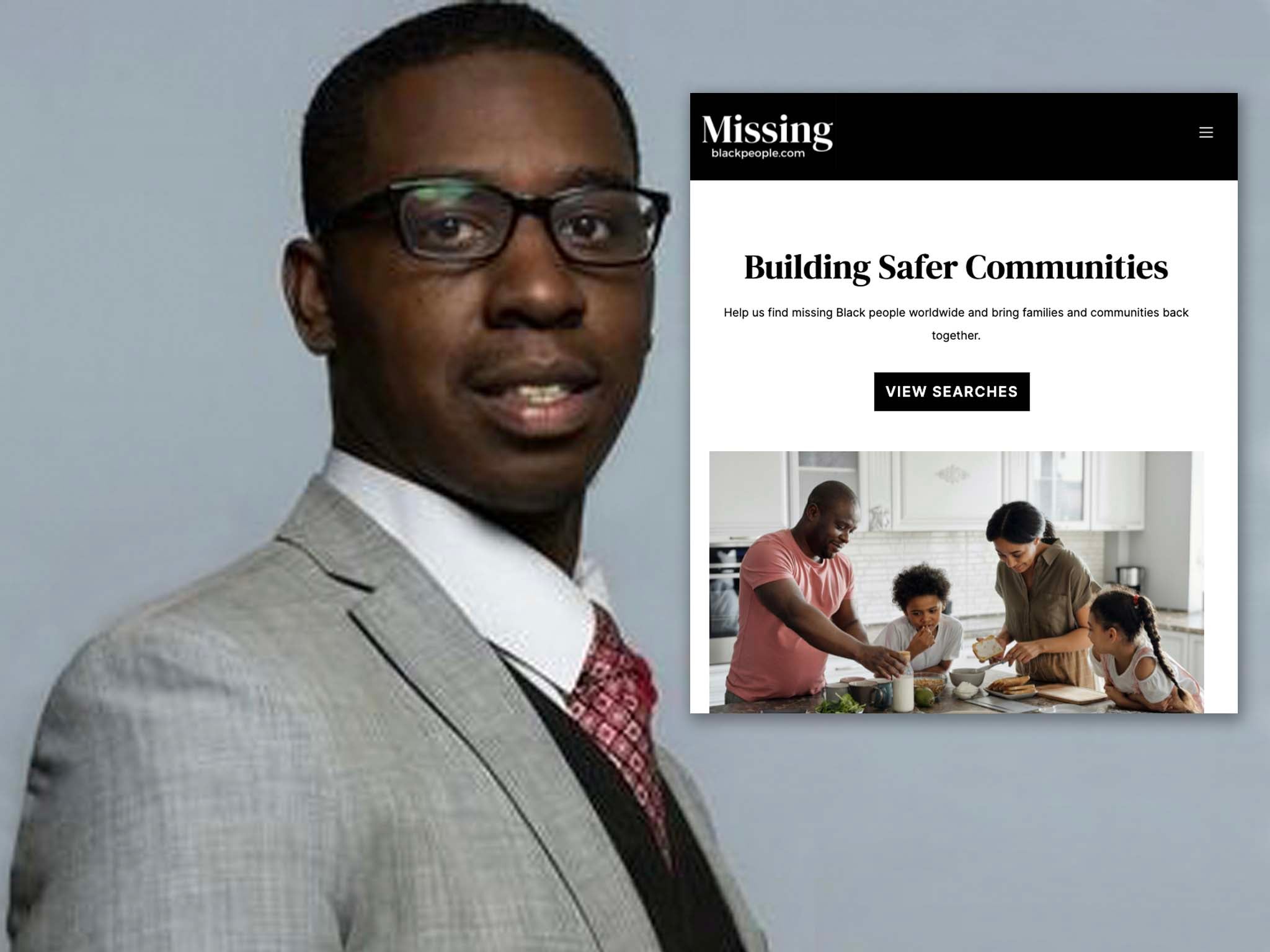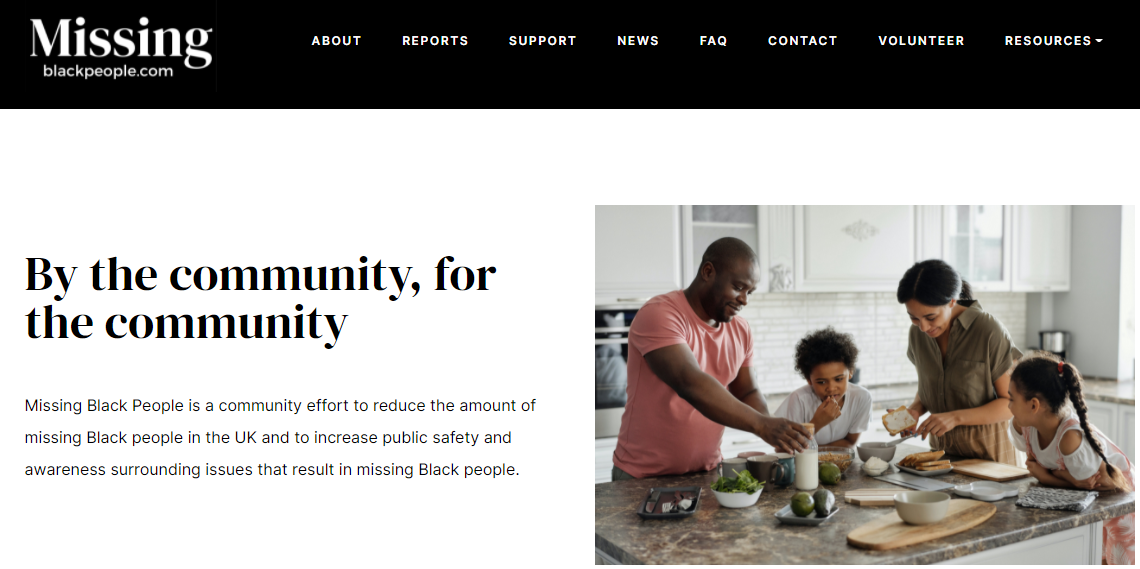Tech entrepreneur launches website to find missing black people
Black people are four times more likely to be reported missing in England and Wales than white people.

A website has been launched to help find missing black people who are disappearing in disproportionate numbers across England and Wales.
Tech entrepreneur Dominic Norton from Newham, east London, decided to start this initiative after identifying with wider concerns around the lack of regard for these disappearances from parts of the media and authorities.
The 26-year-old, who previously worked for companies including Microsoft, Citibank and Mercedes, said his core objective is to affect positive change.
Speaking to The Independent, he said: “My focus is to try and help my community and it’s interesting how the website has taken off.
“Something that certain demographics don’t understand is that there’s a nuance to communities and when you look at the Missing People’s website, their communications, creatives, graphics, everything, it doesn’t resonate with black communities.
“They have some really good resources on there but if you ask most people from black communities what they’d do if someone went missing, they wouldn’t know.”
He added: “The difficulty with Britain is this level of nuance is not popular in the mainstream but if you want to help people, you need that.”
The website, missingblackpeople.com, features a listings page of missing people which is regularly updated by Mr Norton, as well as resources about support available to those whose loved ones have disappeared.

The Londoner does not receive funding for this endeavour but for sustainability would need to find a business model that “does justice to the cause”.
He also launched a petition calling for a public inquiry into the causes surrounding missing black people which has over 10,000 signatures.
Black people are four times more likely to be reported as missing in England and Wales.
This groups accounts for 14 per cent of missing people in England and Wales between 2019 and 2020, over four times (3 per cent) their relative population, according to data from the National Crime Agency.
Following the recent disappearances of young Londoners Richard Okorogheye and Blessing Olusegu, who were both found dead shortly after being flagged to the police as missing, campaigners told The Independent that the government must do more to address the racial disparity in missing people.
Police handling of the disappearance of Mr Okorogheye is being investigated by a watchdog following complaints by his mother Joel Evidence that officers didn’t take his case seriously and treated her as though she was a “nuisance”.

Ms Evidence, a nurse, 39, has also suggested that if her son were white, the police would have responded more favourably.
Mr Norton said: “Richard’s case got more coverage than Blessing’s but those are just two cases. When it comes to missing people we, in the black community, have more cases than every other demographic.”
As far as media coverage, the reason for disparity in approach to missing people is multifaceted, the entrepreneur added.
“It’s two-fold; on one side, most families don’t know how to do PR for the case. If they’re going to do a public outreach, they don’t know how and if they want to hire professionals, it’ll cost money,” he said.
“If I went missing today, my mum would not know how to reach out to the press and she’s not on Twitter.
“On the other hand, newsroom editors don’t prioritise coverage around these cases.
“As sad as it is, newspapers are still companies that rely on a business infrastructure to make money. The whole Black Lives Matter movement is important because black lives are undervalued. However, with that said, if a media company thinks an item isn’t going to get attention, they won’t run the story.”
Mr Norton added: “This is why, for me, this platform was about a community effort. That’s the only way to even the playing field. We’re stronger as a community when we help each other. It sounds really idealistic and we hear it all the time but it’s true.”
Join our commenting forum
Join thought-provoking conversations, follow other Independent readers and see their replies
Comments


Bookmark popover
Removed from bookmarks